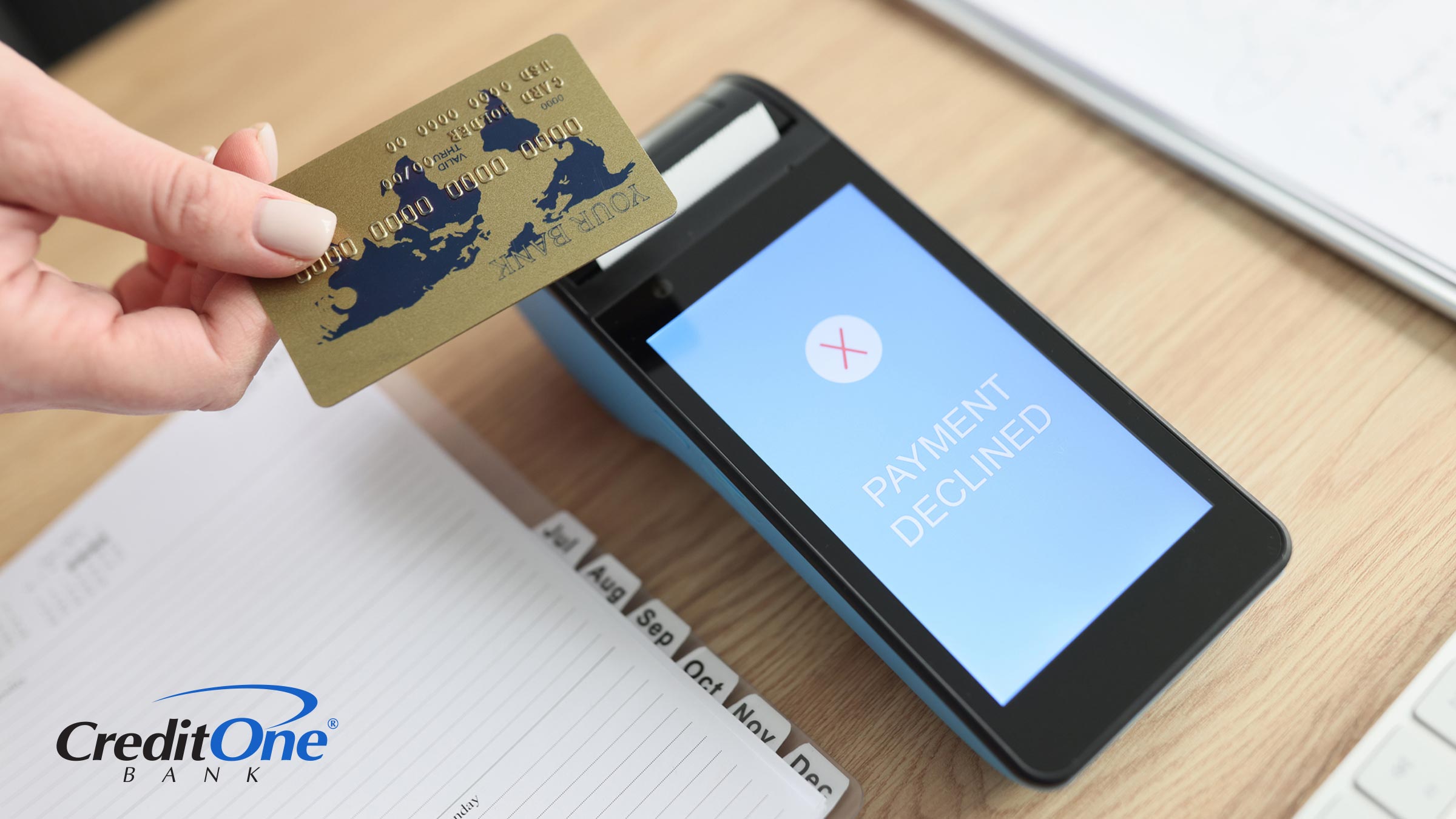
What Happens if You Go Over Your Credit Card Limit
October 02, 2025
Topics:
Credit CardRealizing you’ve spent more than your credit limit is stressful, so it’s good to understand how it happens and how to avoid it.

In this article:
- Introduction
- What Happens if You Go Over Your Credit Card Limit?
- Going Over Your Limit vs Overdrafting: What’s the Difference?
- Does Going Over Your Limit Affect Your Credit Score?
- How To Recover After Going Over Your Credit Card Limit
- Can You Go Over the Limit on a Secured or Rebuilding Credit Card?
- How to Request a Credit Limit Increase
- How To Choose a Credit Card That Aligns With Your Spending Habits
- Avoiding Your Credit Card Limit With Smart Planning
Introduction
You probably don’t think about your credit card’s limit every day.
But if your card is declined while making a purchase, you may find yourself wondering if you hit the limit without realizing it.
Your credit limit is the maximum balance your card issuer allows you to borrow at any one time and it’s set based on factors including your credit score, income and credit history.
It’s easy to understand credit limits and how they work, but what happens when you try to spend more than that limit? Is it possible to overdraft your credit card?
Let’s explore what happens when you go over your credit limit and what you can do about it.
What Happens if You Go Over Your Credit Card Limit?
It can be frustrating and embarrassing to go over your credit limit, have your purchase declined and either have to reach for another payment method or skip the purchase altogether.
That said, going over your limit can also play out in a few different ways. Depending on your card’s terms, your card issuer might:
Simply block the transaction.
Temporarily freeze your account.
Place a hold on your card and notify you that your balance needs attention before you can use it again.
Approve the transaction and allow you to go over your limit, but charge a fee.
An issuer might give a customer with an otherwise good track record some leeway on the fee, but generally speaking you’ll have to take some kind of action to continue using your card after going over its limit.
Going Over Your Limit vs Overdrafting: What’s the Difference?
You can’t overdraft a credit card — the term overdraft refers to a checking or savings account balance falling below $0. With credit cards, you’ve simply “gone over your credit limit” or charged “over-limit transactions.”
While the concepts sound similar, they are different:
When you go over your credit limit, you charge more than the card’s predetermined credit line. If your card allows it, and you’ve opted in, the charge might go through, perhaps with an added fee. Otherwise, it’s blocked.
An overdraft at a bank, however, is when you spend more than you have in your account. Your bank might cover the transaction, but you’ll owe them the difference, plus an overdraft fee.
The former can affect your credit line and potentially your credit score. The latter impacts your checking balance and banking relationship. Both can be costly if you’re not prepared.
Does Going Over Your Limit Affect Your Credit Score?
If you go over your card’s credit limit, it could impact your credit score. It comes down to how much of your total available credit is being used, otherwise known as your credit utilization ratio.
Experts recommend using less than 30% of a card’s available credit and less than 10% of the total credit limit of all your cards.
Let’s say your card has a limit of $5,000, but you spent over its limit and your balance is $5,200. That card’s credit utilization is 104%, which may signal to lenders that you’re overextended.
Even if you pay the card’s full balance on time, that red flag could temporarily bring down your score in the mean time.
Keeping your usage under that 30% figure can help you maintain or improve your credit. That means paying down balances regularly and avoiding high charges near your billing cycle’s end.
How To Recover After Going Over Your Credit Card Limit
If you’ve already exceeded your limit, the easiest solution is to make a payment to get your balance back down as soon as possible. Taking action sooner than later can help minimize the impact on your credit score.
Then, reach out to your card issuer. Let them know you’re handling the over-limit spending. If you usually pay on time and have a good track record with them, they might waive the over-limit fee or provide other support.
If you want to prevent it from happening again, some banks allow you to set balance alerts via text message or mobile app. You can set up an alert that tells you when you're nearing your limit.
You can also try using your card only for predictable monthly expenses you can pay off fully, and avoid putting emergencies or large purchases on it, unless you know you can cover them.
Can You Go Over the Limit on a Secured or Rebuilding Credit Card?
If you're using a credit-building card, like the Platinum Visa, your ability to go over the limit is usually restricted. While these cards often come with lower initial credit lines, they offer meaningful benefits such as cash back rewards and opportunities for credit line increases over time. They’re designed to help you build or rebuild your credit while still earning rewards, making them a positive step forward when used responsibly.
With rebuilder cards, keeping your balance well below the limit is a good strategy. That consistent behavior shows lenders you're ready for a higher-tier card down the road.
How To Request a Credit Limit Increase
One of the easiest strategies to avoid reaching your credit limit is to increase it. If you’ve used the card responsibly, you may qualify for a credit line increase.
Learning how to earn a credit limit increase can help improve your chances. Before contacting your card issuer, check your credit report for errors and pay down your balance. Timing your request when your score is trending up can also help.
Just keep in mind that some issuers may conduct a hard inquiry before increasing your limit, which could temporarily lower your score.
How To Choose a Credit Card That Aligns With Your Spending Habits
If you find yourself regularly brushing up against your credit limit, it might be time to consider a new card that better fits your financial situation.
Using a credit card finder is a helpful way to explore options that match your income, goals, and habits. Whether you’re rebuilding credit, looking for cash back rewards, or need a higher limit, you can find the card that fits.
It’s also important to compare credit cards based on fees, interest rates, and perks. Some cards may offer offer features like monthly credit score access or automatic limit reviews.
Avoiding Your Credit Card Limit With Smart Planning
It doesn’t take fancy tools to avoid going over your credit card limit, it just takes some attention and planning.
If your bank offers them, you can start by setting up alerts for when you’re nearing a card’s limit. You can track your purchases throughout the month and, if needed, make payments before your statement closes to lower your balance.
It’s good to understand your card issuer’s policies. Some cards won’t allow you to go over the limit under any circumstances, while others may process the charge, for an added fee. It’s good to know which.
Ultimately, your credit card should work with you, not against you. The more proactive you are with planning and monitoring, the easier it is to stay in control and avoid unnecessary fees or credit score setbacks.
And if you do go over your limit, don’t stress. A quick response, a plan to get back on track, and making informed financial choices moving forward can get you back in good standing quickly.



